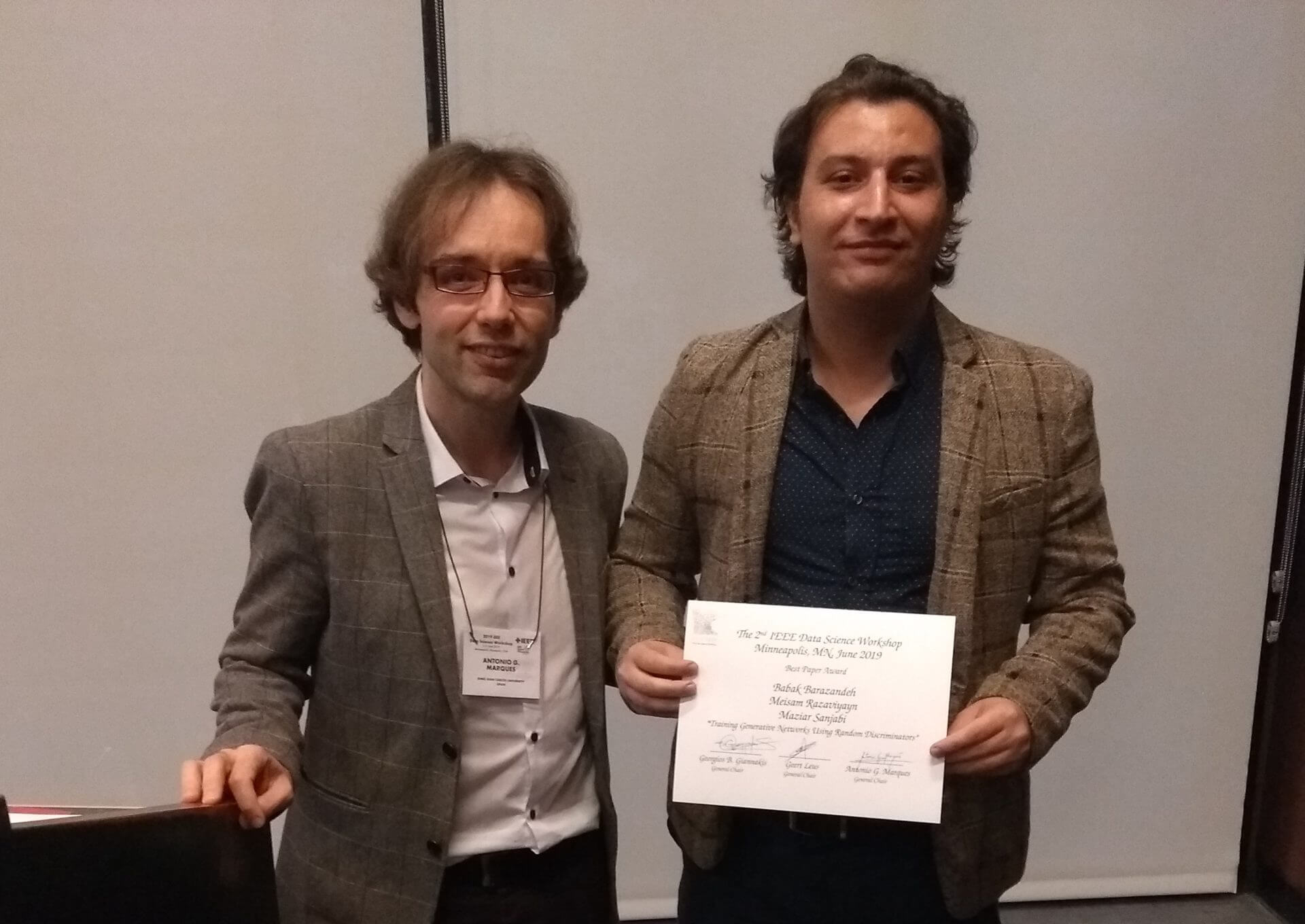
Babak Barazandeh (R), Winner of Best Paper at the IEEE Data Science Workshop, with DSW organizer Antonio García Marques.
PhD student in the Daniel J. Epstein Department of Industrial and Systems Engineering, Babak Barazandeh has been awarded Best Paper at the recent Institute of Electrical and Electronics (IEEE) Data Science Workshop (DSW 2019).
Held in Minneapolis, Minnesota from June 2-5, DSW 2019 featured leading researchers from academia and industry working on data science problems.
Barazandeh works within Assistant Professor Meisam Razaviyayn’s Optimization for Data Driven Science (ODDS) research group, with a research interest in developing algorithms for non-convex learning problems such as mixture models or Generative Adversarial Networks (GANs). He obtained his MS from Virginia Tech in 2017 and BS from Sharif University of Technology in 2014 in Statistics and Electrical Engineering, respectively.
Barazandeh’s winning paper, titled Training generative networks using random discriminators, was written with Razaviyayn and Maziar Sanjabi, a research scientist at Electronic Arts.

